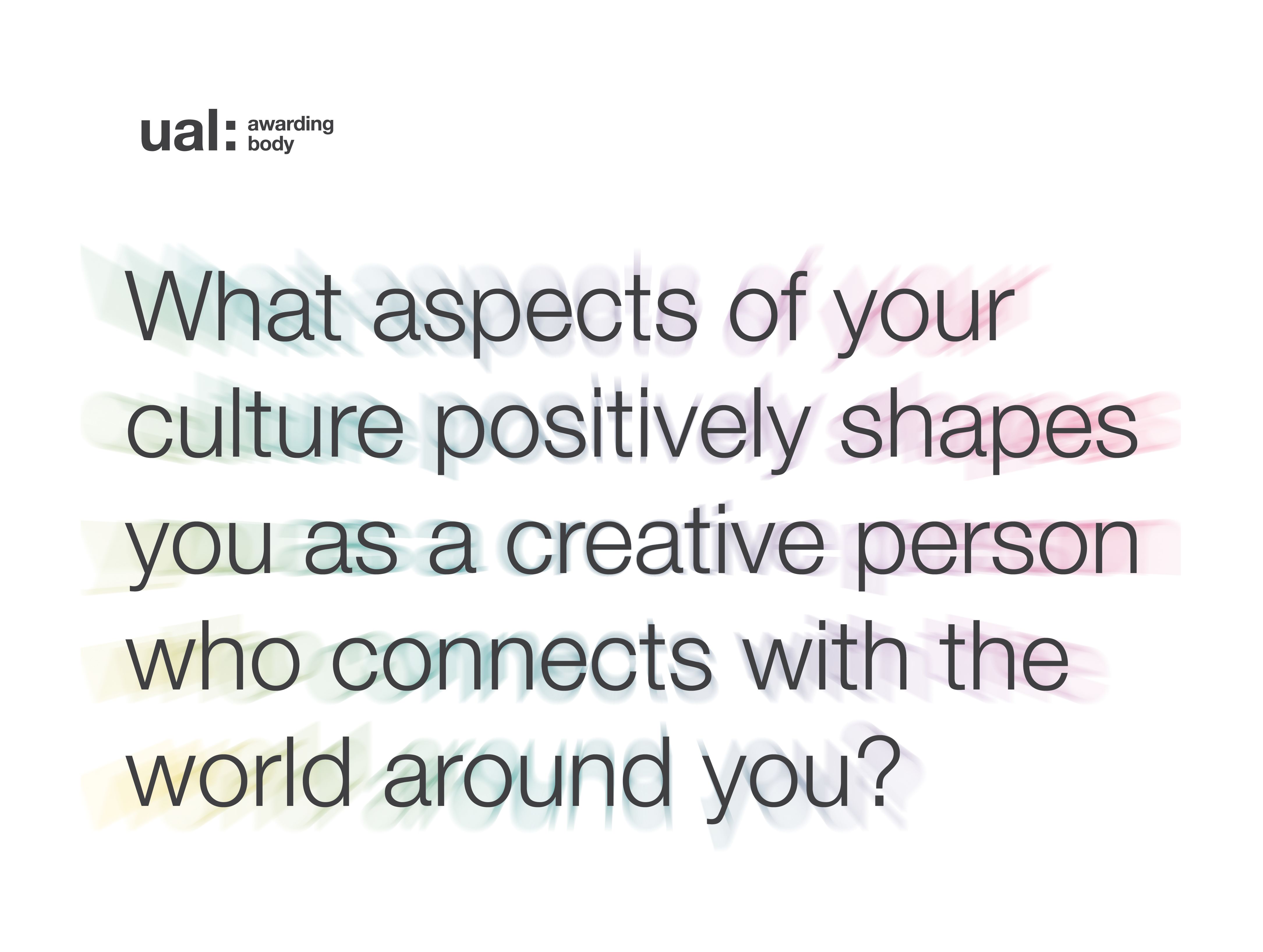Karina H Maynard explores different elements of the first provocation

- Written byKarina H Maynard
- Published date 24 January 2023

The belief in the value of creative education drives our work in further education. We provide educational opportunities that help young people gain the knowledge, skills and practical experience to benefit from engagement in the creative process.
It is rewarding for professionals who provide positive learning experiences to witness the growth of talent, potential and confidence that creativity brings out in young people. Now more than ever, we are conscious of how the type of educational experience can influence the success and outcomes of diverse student bodies. And in a broader perspective, the support teachers provide can positively impact student prospects and the future impact students will make through their artistic works or the creativity they apply in a broad range of careers and pursuits.
In creative education, we aim to encourage young people's belief in their creative potential. We guide them through different methods that support self-exploration to help them to realise and express their artistic point of view. An essential element of this process is for students to tap into their identities, consider their thoughts and feelings, and confidently share their ideas. Teachers require ongoing professional development to facilitate enriching educational experiences that benefit students with a range of protected characteristics and life experiences.
The Provocations project I have developed in partnership with UAL Awarding Body encourages students to explore their creative potential through three provocations that explore cultural identity, societal impact and global historical narratives. Students who choose to participate in the Provocations project will create artistic works beyond their core curriculum.
The first of three provocations asks: 'What aspects of your culture positively shape you as a creative person who connects with the world around you?'.
The first provocation invites students to explore their identity through a cultural lens. They can draw on their heritage, cultural influences or the artistic movements in which they feel a sense of belonging. It invites students to consider how they connect with the world, how our individual and collective stories shape us as creatives, and how these aspects can help us to appreciate a diversity of creative expression.
This type of self-exploration prompts reflection and inquiry that encourages students to acknowledge how their unique identity is a gift. It positions students to develop creative work that reflects their individual life stories. The provocation helps students who participate in the project appreciate the uniqueness of other creatives and their cultural narratives. The aim is to help students to understand how celebrating diverse cultures benefits them as creatives, allows them to connect with others and broadens their perspectives and appreciation of a diversity of artistic expression.
I will facilitate three online workshops to accompany the three provocations I have created for the UAL Awarding Body. They will enable educators to develop the knowledge and abilities to support students through these experiences. The first online workshop will focus on cultural identity. It will help teachers consider approaches that support students' cultural self-exploration. We will explore the support students need to bring their authentic identities to their educational experience.
The first online workshop will focus on cultural identity. It will help teachers consider approaches that support students' cultural self-exploration. We will explore the support students need to bring their authentic identities to their educational experience.
In recent years there has been a swift shift in the expectations of professionals to be informed and equipped to meet Equity, Diversity and Inclusion (EDI) needs in line with contemporary values. There has been an increase in awareness of historical and systemic issues that, by default, hinder the provision of inclusive and representative learning experiences. For students to engage in a journey of self-exploration, educators need to provide a safe and supportive space. The online workshops support the development of empowering teaching approaches that meet the needs of diverse student bodies. They improve contextual understanding and awareness that help teachers to develop confidence and skills to encourage students to engage in unique cultural expression in their creative education.
In addition to the provocations and accompanying online workshops, I have also designed an immersive in-person CPD training day. Launched in December 2022, I will facilitate two more sessions in 2023. The CPD training days provide a comprehensive overview of the factors that create a positive learning environment. Educators who attend this training gain an understanding of fundamental aspects that are conducive to a positive learning environment. The focus is to recognise and celebrate the unique characteristics of students, which supports positive integration rather than assimilation. It prompts educators to conduct research that guides diverse lesson development. By exploring the history and contemporary values that empower anti-discriminatory practice, teachers can introduce topics and figures whose significance has been diminished in traditional mainstream curricula due to factors relating to systemic discrimination. Most importantly, teachers will develop the confidence to discuss, reflect and critique their belief systems to continually learn and develop their skills without feeling disempowered in their positions.
I am delighted to work with the UAL Awarding Body to deliver this year's Provocations project. I encourage educators to encourage students to engage with the three provocations designed to boost self-esteem, cultural pride and cultural understanding.
I look forward to meeting with teachers who join the online workshops for the three provocations and those who attend the in-person CPD training days. Together, we will develop a contextual understanding of protected characteristics and diverse needs.
I want educators to feel more comfortable speaking about cultural themes and understand that the changes we are going through do not challenge the educator's authority but instead stimulate personal and professional growth. The aim is to promote an enjoyable and refreshing approach to EDI that enhances your professional experience and enthusiasm for your educational practice.